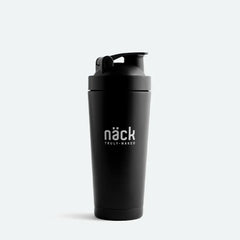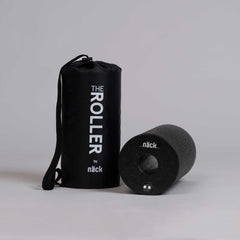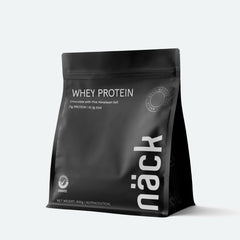Whey is all the buzz amongst athletes, fitness enthusiasts and health-conscious individuals alike. But, what exactly is Whey protein and why has it got all the gymrats psyched?
Let’s find out.
What is Whey?
Whey protein is derived from Whey, a liquid by-product of the cheese-making process. This liquid is then processed to filter out fats and carbs and obtain Whey protein. Here’s a fun fact for you, for every one pound of cheese made, you get about nine pounds of Whey!
There are three types of Whey protein: Whey concentrate, Whey isolate and Whey hydrolysate. Most Whey protein blends mainly contain Whey Concentrate and Isolate.
Whey concentrate is the least processed of the 3 and contains between 70% to 80% protein. The remaining 20% to 30% is made up of fat and carbohydrates, including lactose. It typically has a slightly higher level of bioactive compounds, such as immunoglobulins (proteins that are antibodies) and lactoferrin (globular glycoprotein that modulates antigen-specific immune responses), which may offer health benefits beyond basic nutrition.
Whey Isolate is what you get when you process this concentrate further to remove most of the lactose and fats. It typically has a 90% protein concentration.
Since it is a purer form of the protein, it typically has lower calorie, lactose and carbohydrate content than whey concentrate.
Whey Hydrolysate is obtained by hydrolysing Whey Concentrate or Isolate, a process in which bonds between amino acids are broken down and the protein gets converted into smaller peptides.

What makes Whey a great source of protein?
Whey protein is a complete protein source which means that it has all the 9 Essential amino acids that cannot be synthesised within the human body. Essential Amino Acids are crucial for the body's growth, repair, and maintenance of tissues, including muscles, bones, and organs. Whey protein is particularly rich in BCAAs - branched chain amino acids namely, leucine, isoleucine, and valine. The complete Essential Amino Acid profile makes it especially useful for athletes and fitness enthusiasts who want to support their muscle growth and recovery, and by individuals who want to manage their protein intake.
What’s more? Whey is a fast-absorbing protein so your body is able to utilise the protein quickly for muscle protein synthesis.
How can consuming Whey support your active lifestyle?
Studies have shown that regular consumption of protein may lead to increased muscle strength and performance, faster post-workout recovery and improved endurance. It also helps you feel full for longer, and hence may help with weight management as well.
Apart from muscle growth, Whey protein also helps build a stronger immune system, enhance skin & hair health, reduce blood sugar levels, and inflammation. This is because of the high-quality protein in Whey, as well as the lactoferrin, beta-lactoglobulin, alpha-lactalbumin and immunoglobulins present in it, more in Whey Concentrate than Isolate.
Head over to our research page to find out more about Whey.

Who is it for?
Whey is an exceptional source of protein for anyone looking to crush their fitness goals, whether you’re an athlete, gym go-er or simply want to have enough protein during the day.
Can you have it if you’re lactose intolerant?
If you have lactose intolerance, that means you don't make enough of the enzyme lactase. This lactase enzyme breaks lactose down into glucose and galactose so your body can use these simple sugars for energy. But without sufficient lactase, lactose moves through your gut undigested and may lead to symptoms like bloating, diarrhoea and abdominal pain.
Slightly lactose-sensitive individuals might be able to tolerate Whey protein blends that have added digestive enzymes to help break down lactose into simpler sugars and help with digestion. Näck’s Whey Protein contains 210mg of Digestive Enzymes that help with easy digestion to enable efficient absorption of protein in our body.
For individuals with severe lactose intolerance, plant-based protein sources like Näck Plant Protein Powder would be a great option. It has a high protein content (80%), and a complete Essential Amino Acid profile - all while being free from dairy, sugar, soy and common allergens.

How much Whey can you consume?
The recommended minimum daily protein intake as per RDA regulations is 0.8 gram per kg of body weight. While Whey is a great source of protein, it should be used to supplement your diet to meet your daily protein requirements, and not to replace your food completely.
How much protein you need depends on your training and other factors, so it's always best to consult with your nutritionist, doctor or trainer.
When to consume?
Best time to consume Whey is 30-60 minutes after your workout. However, getting enough protein throughout the day is more important than the time at which you consume it. So, go ahead and use it as a high-protein snack to supplement your diet at any time of the day.













